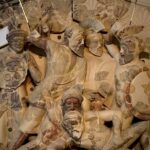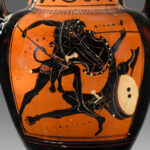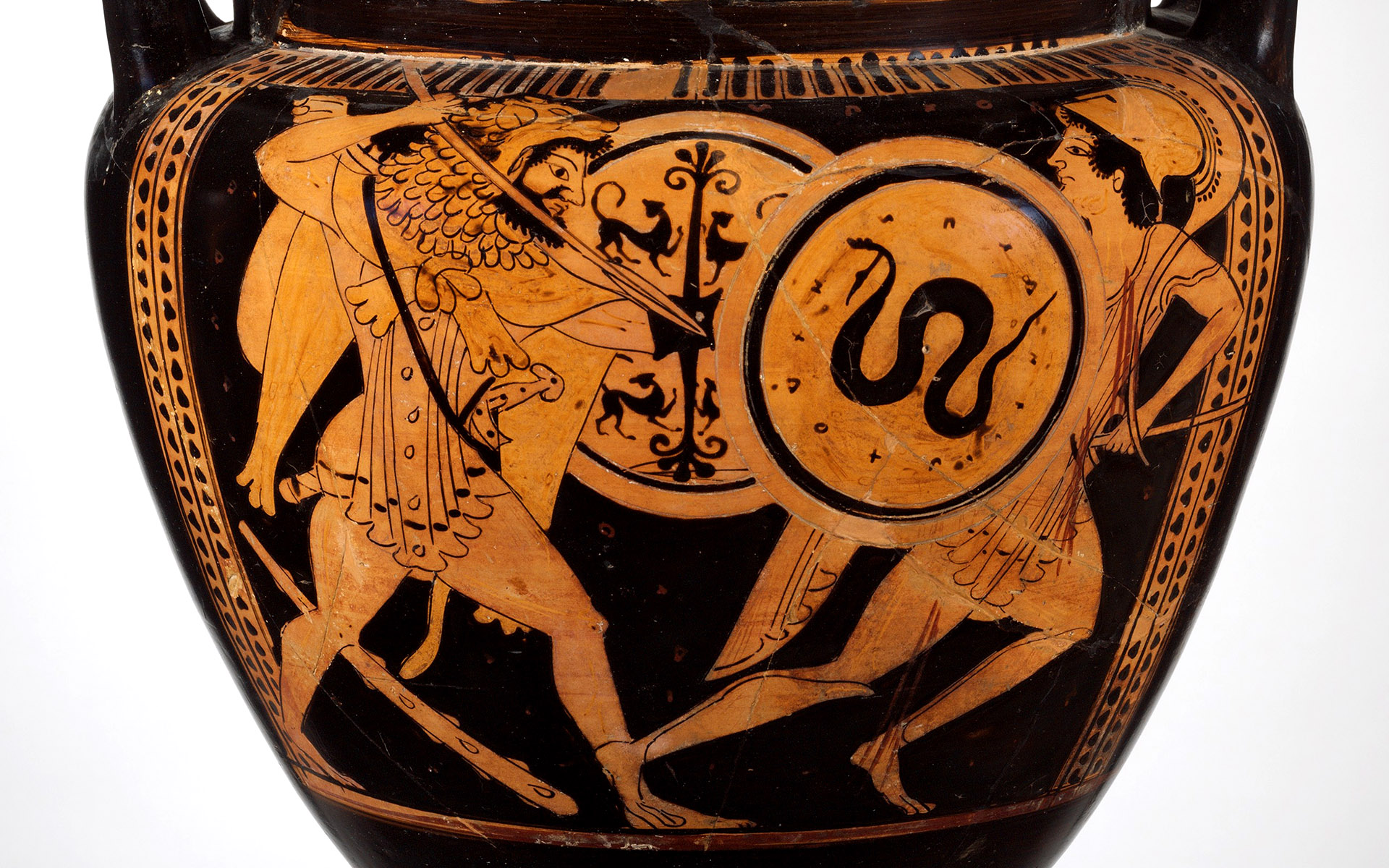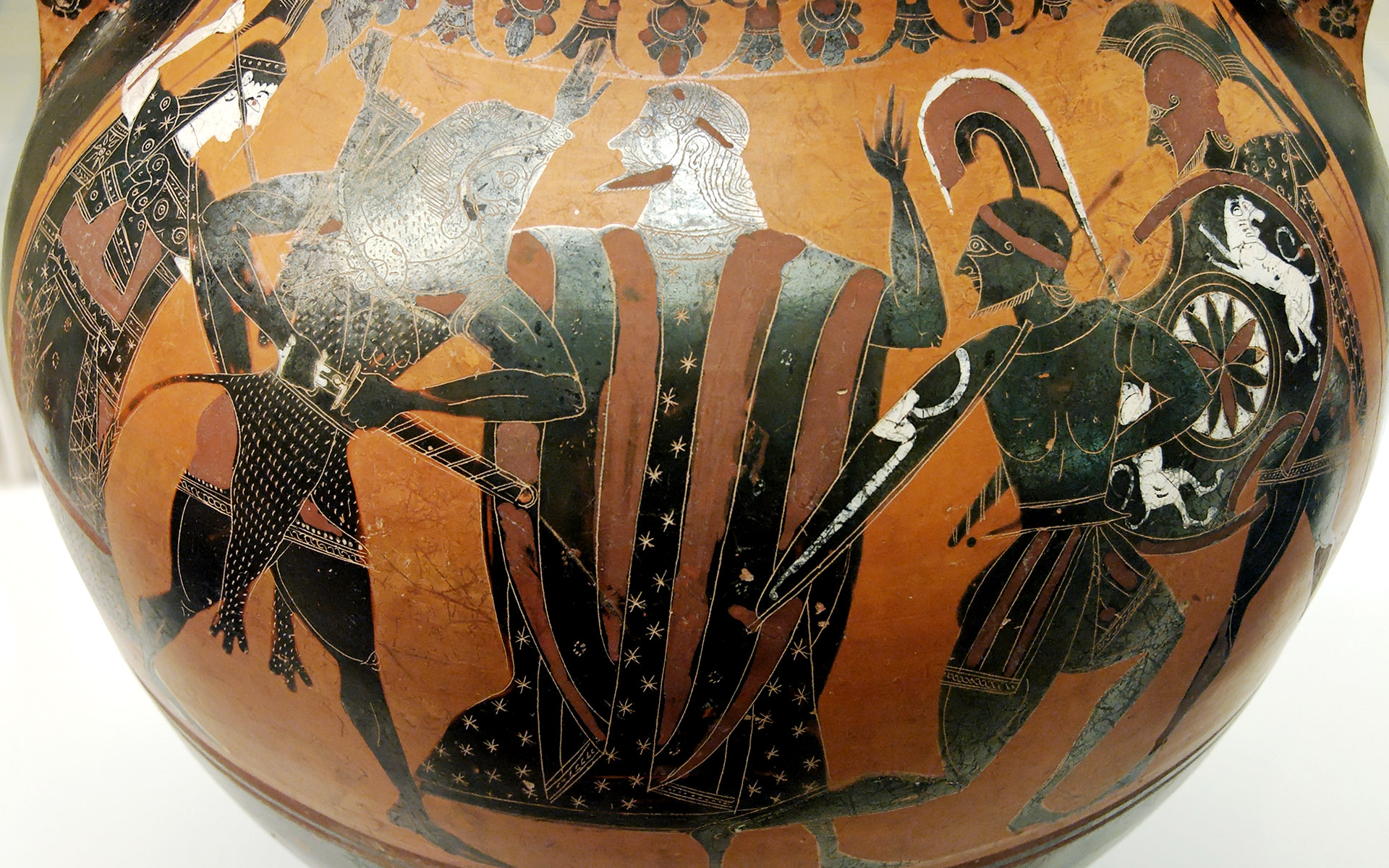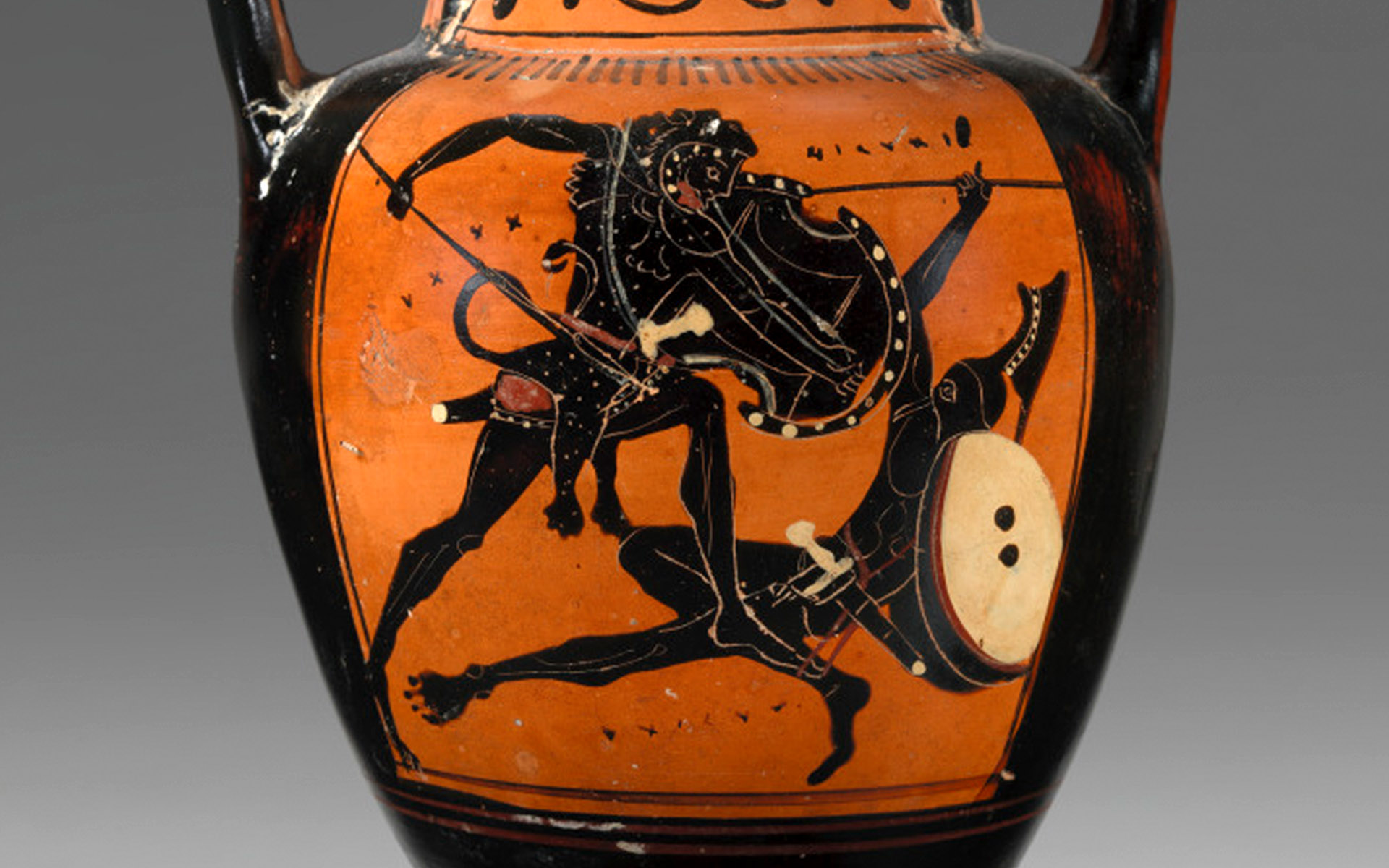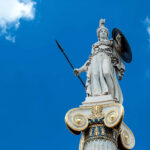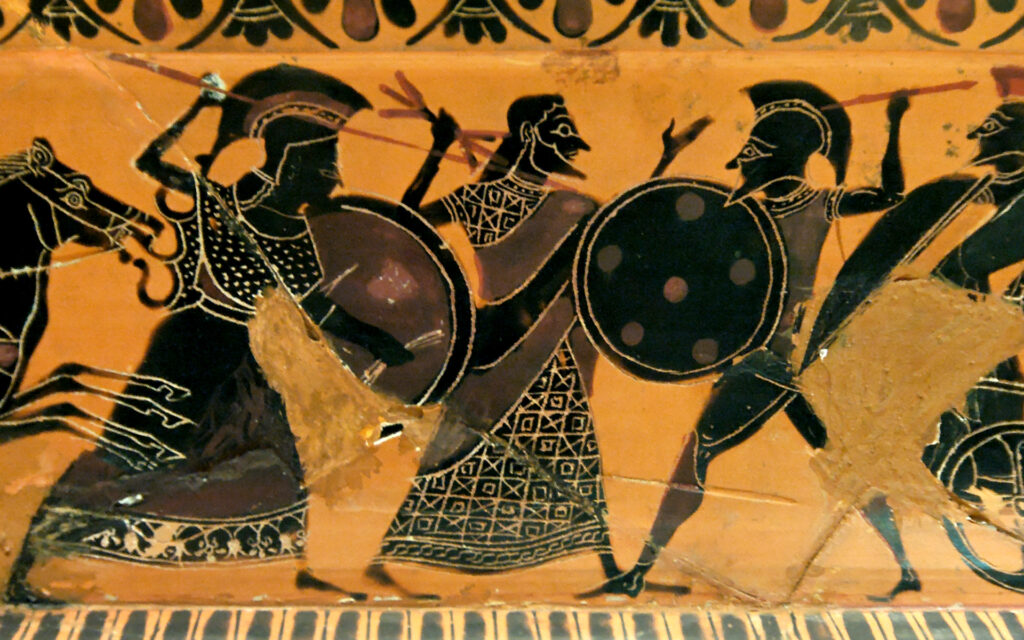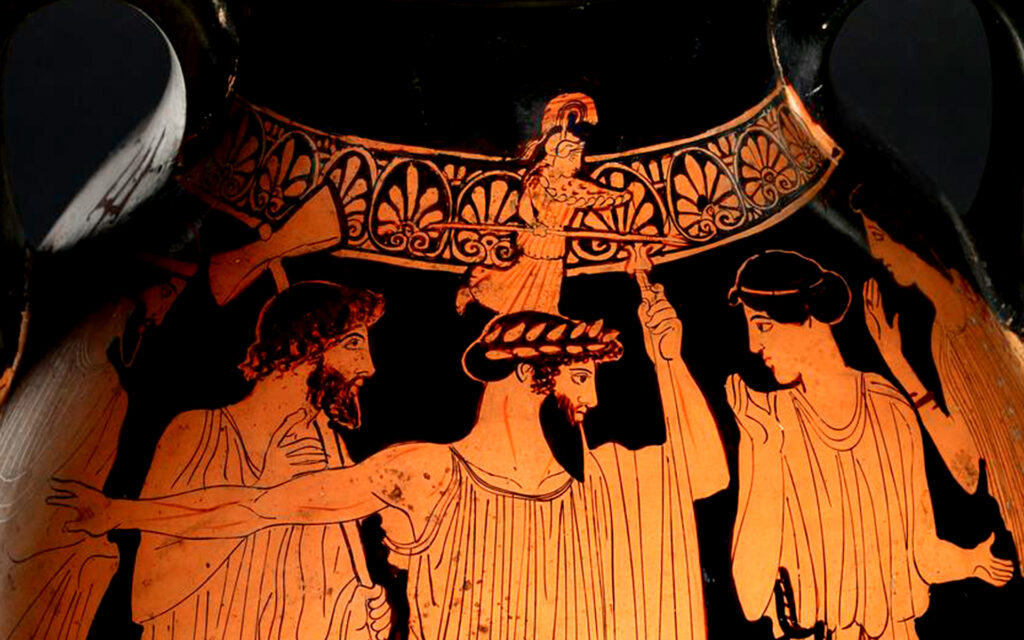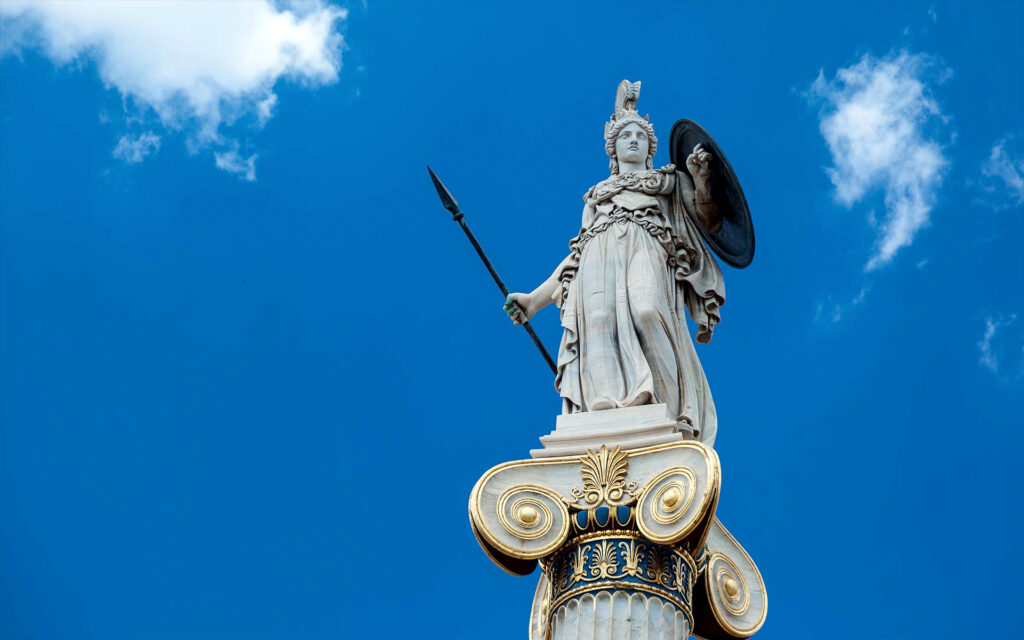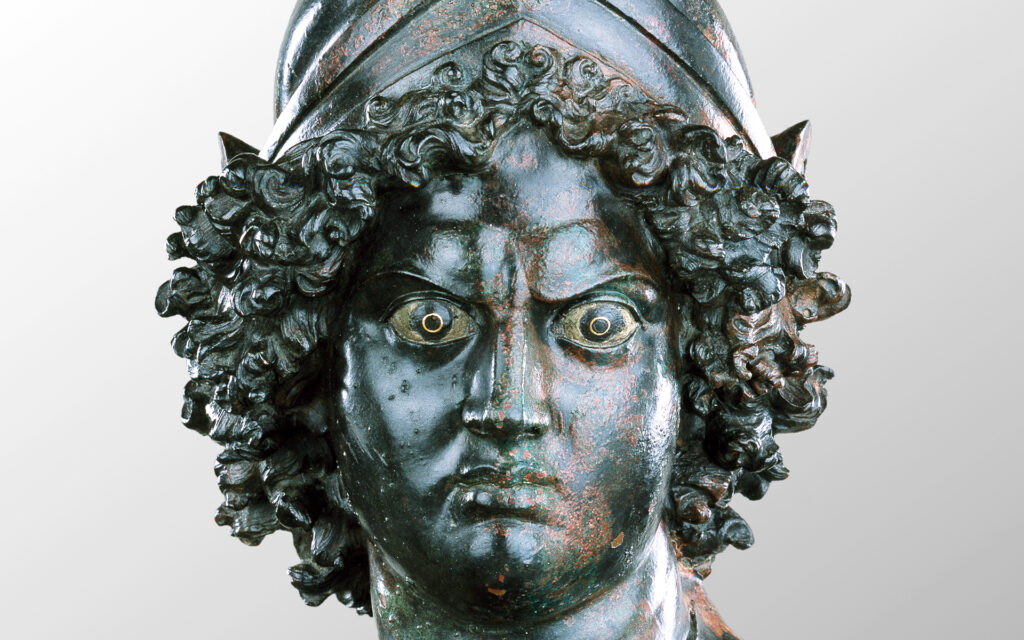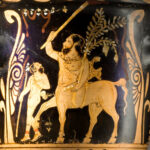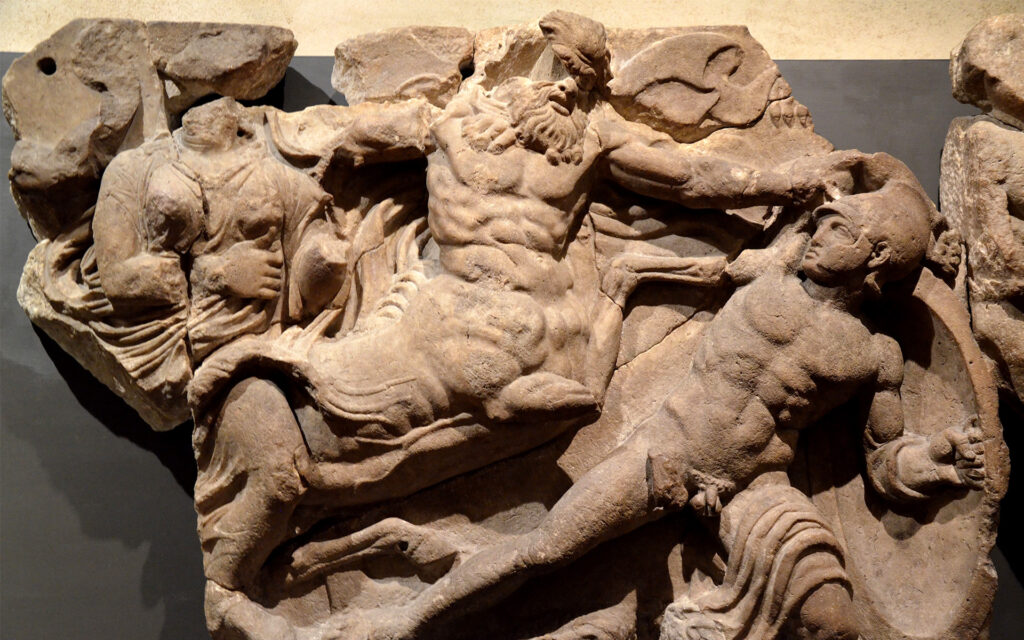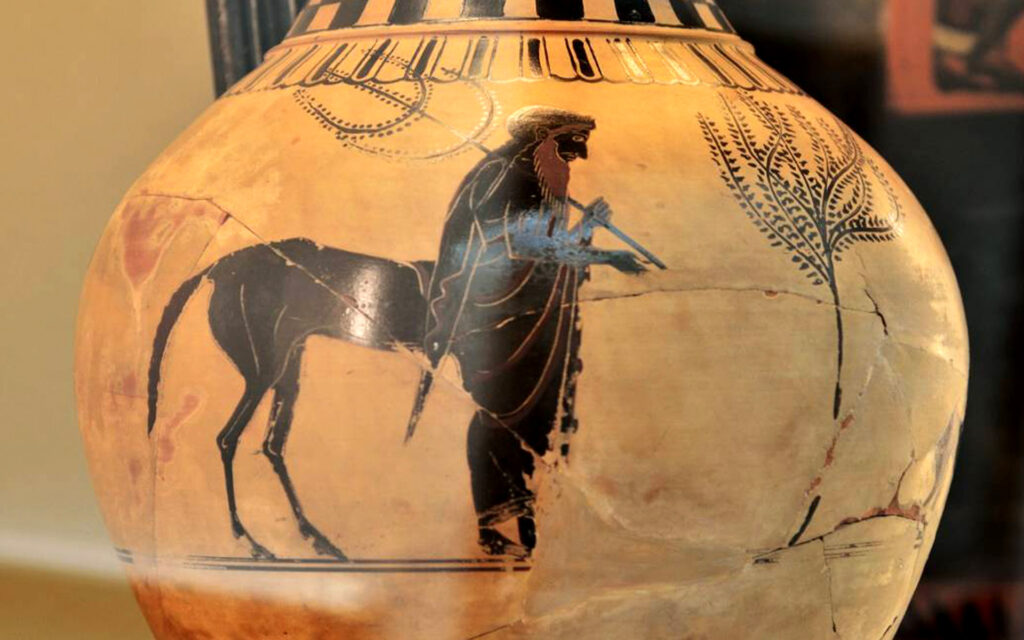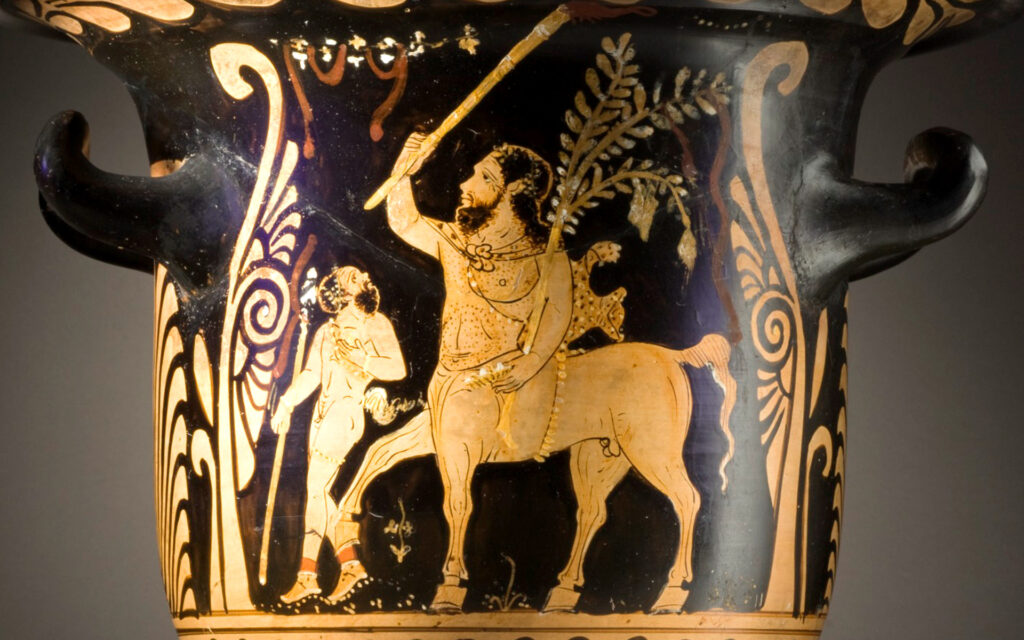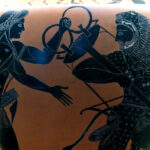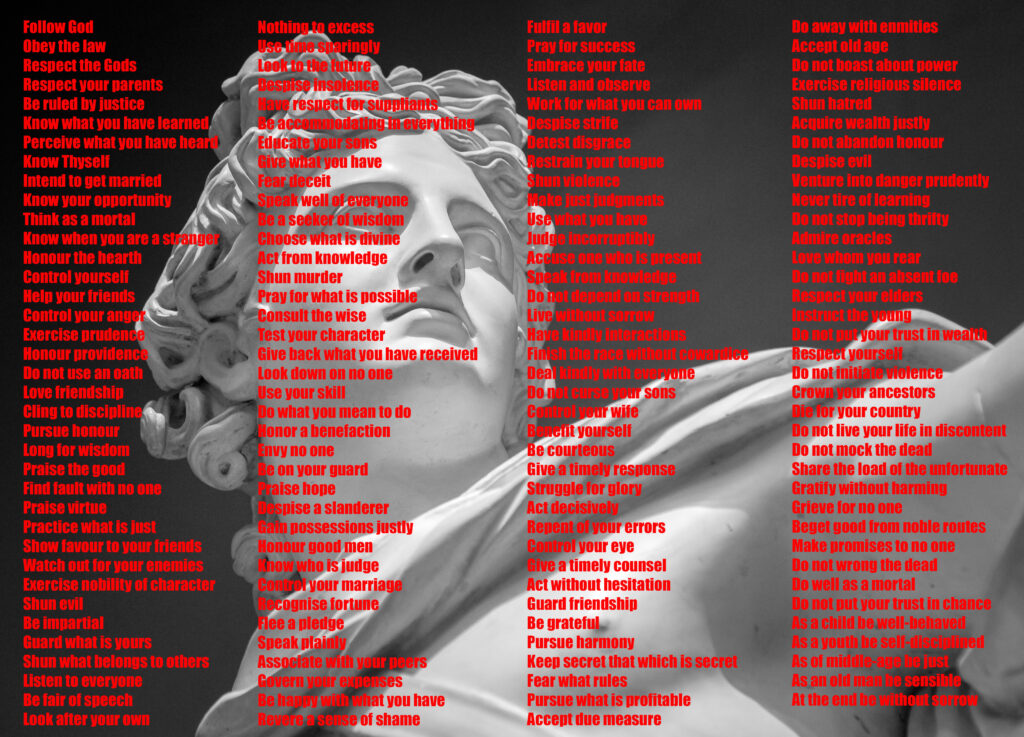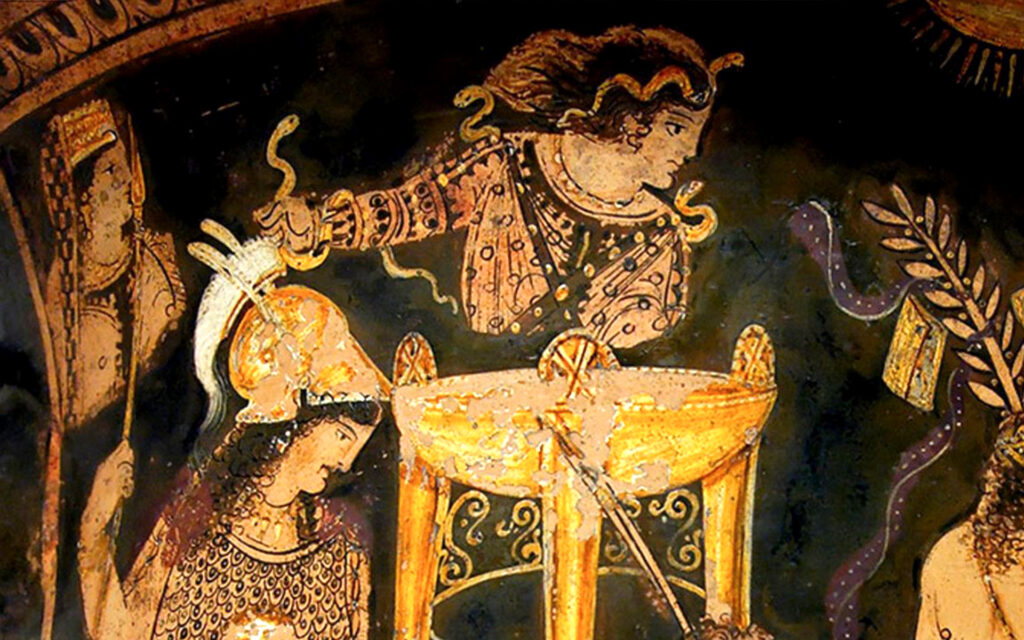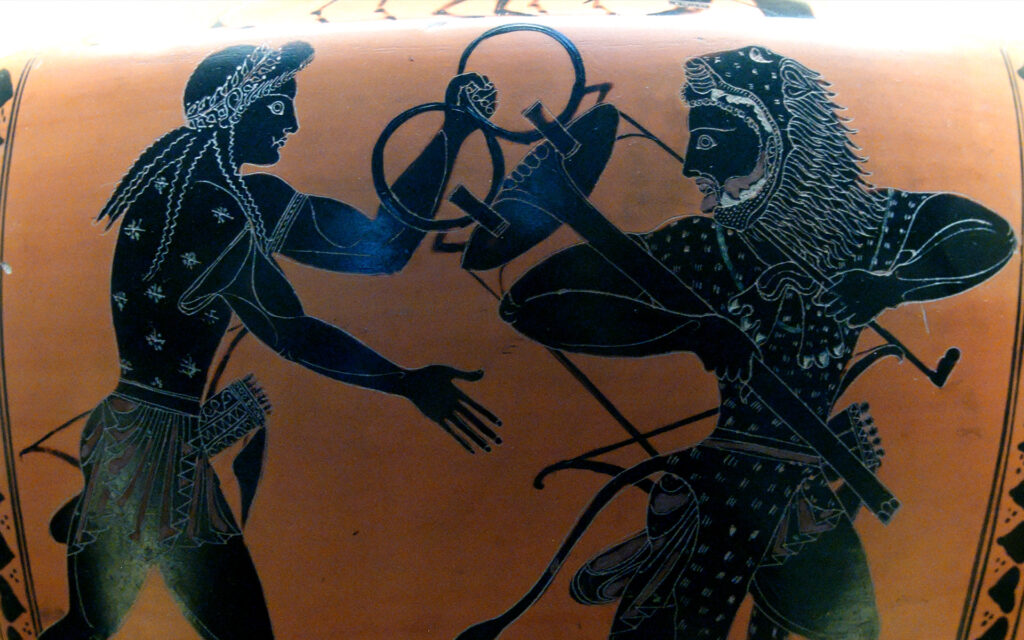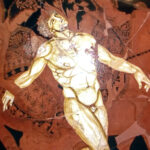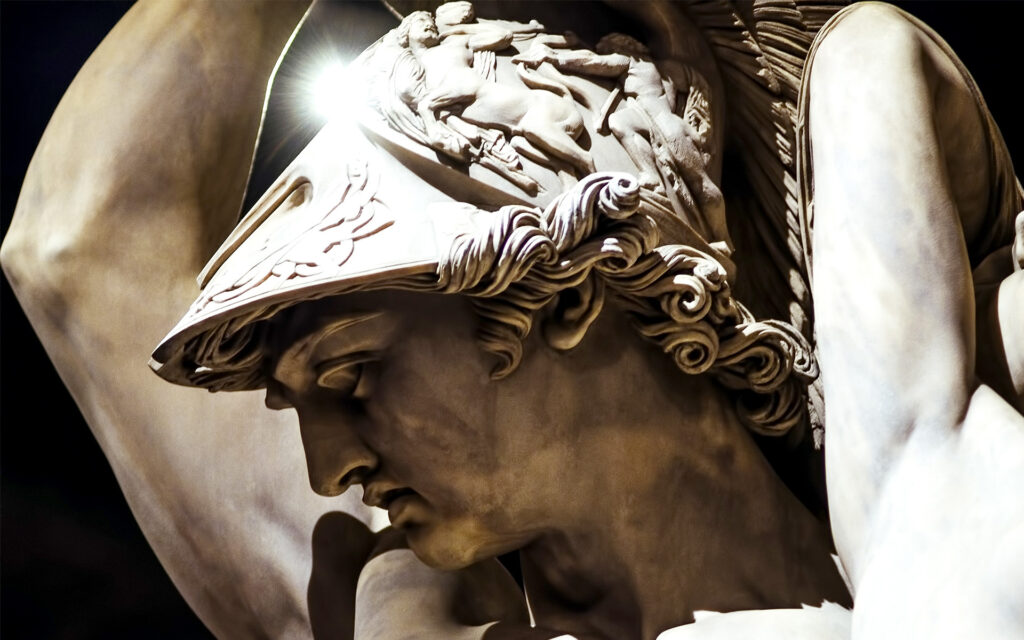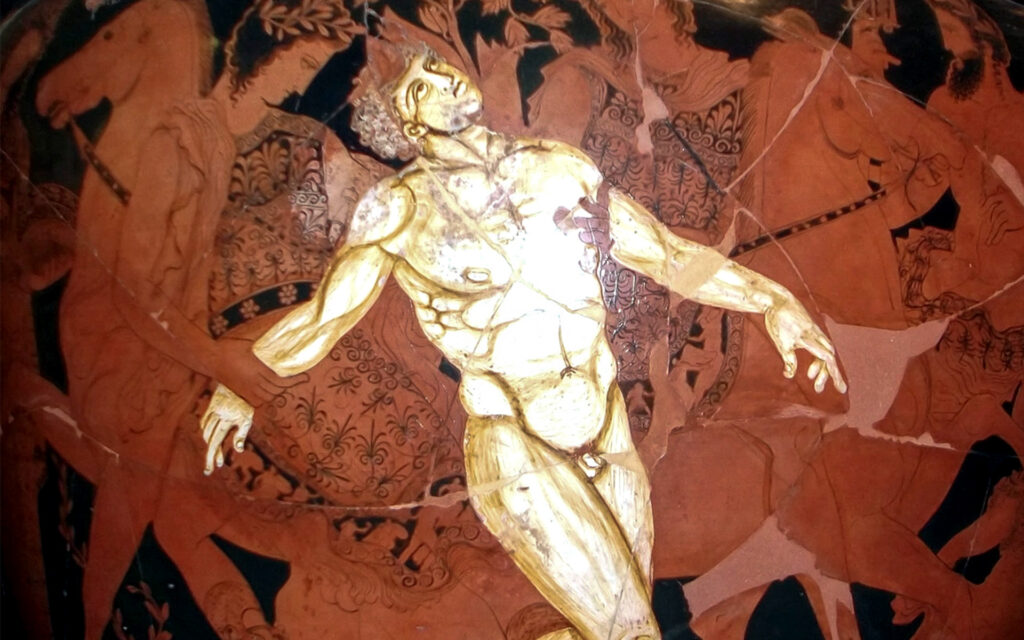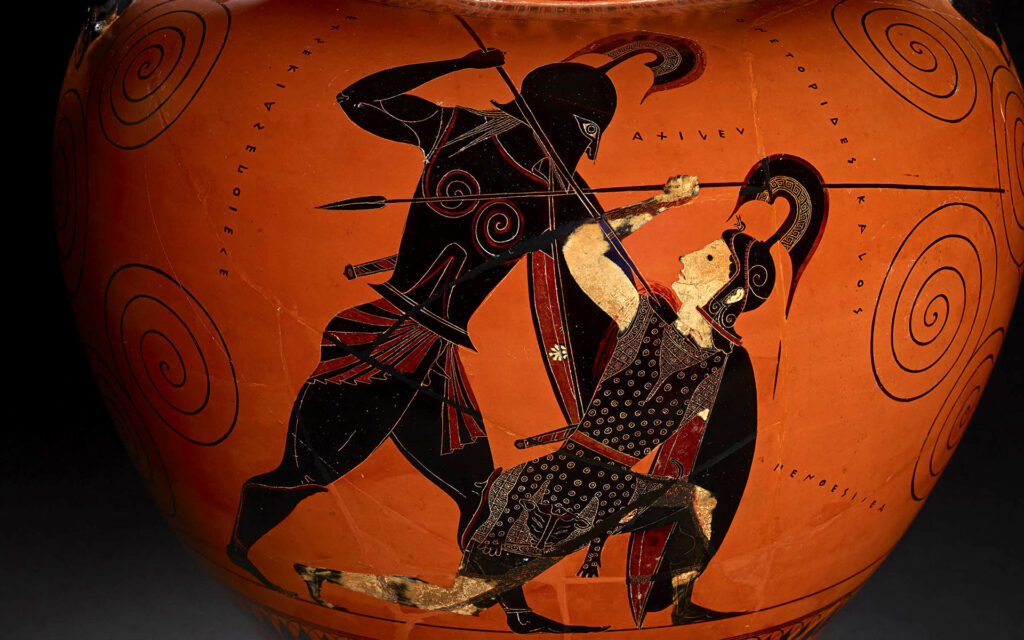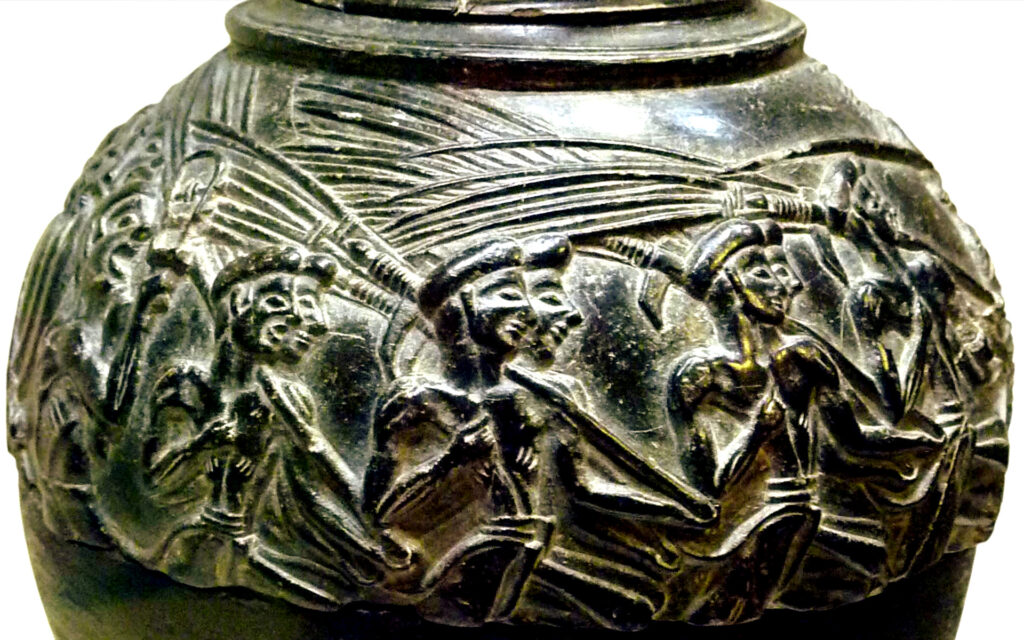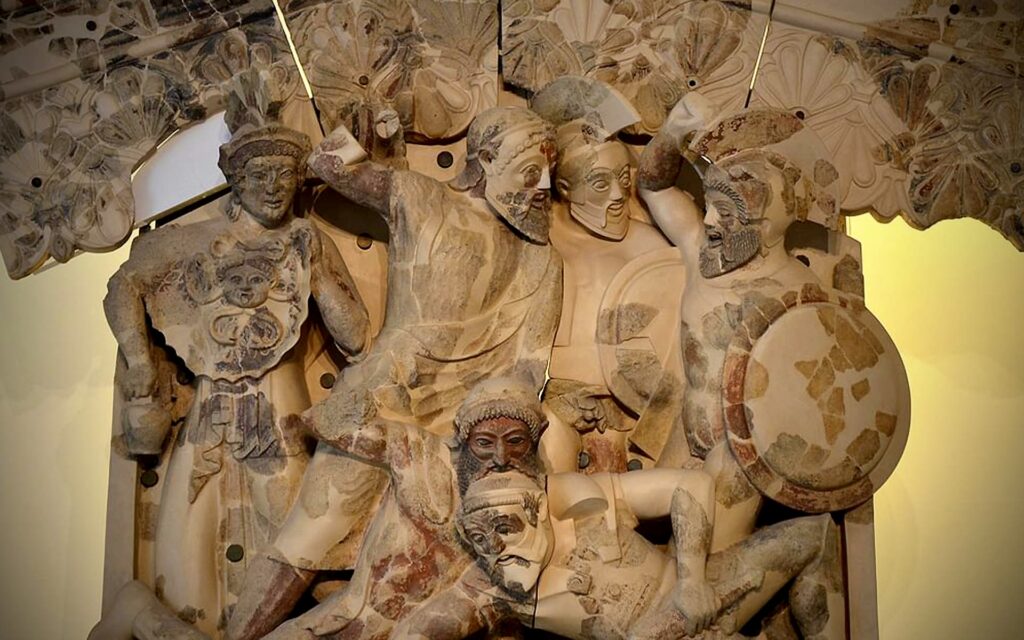
The story of the Seven Against Thebes and the subsequent saga of their sons is the bridge that links the earlier, rougher generation of heroes, with the later one in the Iliad and Odyssey.
The Age of Heroes was really divided into three generations. Primordial heroes like Kadmos, Perseus and Bellerophon are of the earliest period. Following them, Theseus, Herakles and the Argonauts are the middle group, and the Homeric heroes form the final set of Greek heroes.
Many of the Argonauts were the fathers of the heroes of the Trojan War, with the brothers Peleus and Telamon standing out in particular as the respective fathers of Akhilleus and Aias. The best bridge between the three generations, however, is the tale of the Seven Against Thebes. Seven heroes set out to wage war on the city of Thebes, which was founded by Kadmos.
Thebes was seemingly cursed from the outset, yet a pivotal place in Greek mythology. Founded by Kadmos, as laid out in Undying Glory, it was the birth place of Herakles and the setting for the patricidal tale of Oidipous. The story that sets the premise for the Seven Against Thebes is that of Oidipous’ sons Polyneikes and Eteokles. The blind king curses his sons in a fit of rage and dooms them to fight over the kingship of the city.
This is where the tale of the Seven picks up the thread. Polyneikes leaves the city upon his father’s death, but he intends on returning and seizing the crown from his younger brother Eteokles. He arrives in Argos at the same time as another exiled hero, Tydeus. The pair do battle, but the king of Argos, Adrastos, stops their fight and reconciles them. He marries them to his daughters and promises to install Polyneikes as king of Thebes.
Tydeus, a short statured, but fierce and brutal warrior, is the template for the knight errant. He loves high adventure, but has a ferocious temper. He fights under the emblem of the boar, which will later be the totem of his son, Diomedes.
Polyneikes and Tydeus gather the heroes Kapaneus, Eteoklos, Hippomedon, Parthenopaios and Amphiaraos and head out to Thebes with Adrastos as the commander. These Seven, plus one, lay siege to the city. They ultimately fail, all meeting their end aside from Adrastos who retreats to Argos. Kapaneus is struck down from the walls by Zeus due to his hubris. Tydeus, fatally wounded, is about to be granted immortality by Athena, who is his patroness, when he gnaws on the brains of the man who dealt him his fatal blow. Disgusted by this act, Athena does not confer immortality upon him, but is convinced to give it to Tydeus’ son Diomedes when his time comes.
Later, the sons of the Seven Against Thebes sack the city and enact revenge for their fathers. Most of them set out for Troy when the heroes are called to fight by Agamemnon. Of these, Diomedes is a stand out hero of the Iliad, glorying in battle and sending the gods running back to Olympos with Athena by his side. Sthenelos, son of Kapaneus, is his comrade throughout.
The Theban Cycle of myths is intricately connected to the Trojan Cycle and the story of the Seven and their sons in the pin that holds them together. In my upcoming work, Age of Heroes, I explore this more deeply and draw further lessons from the Greek heroic mythos for men of today.
